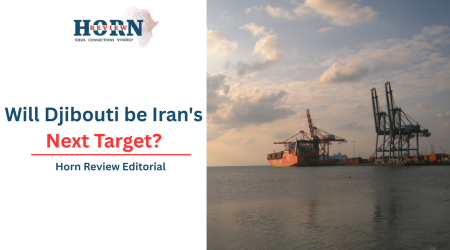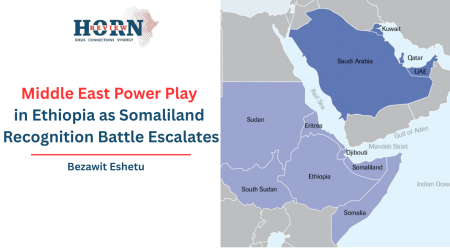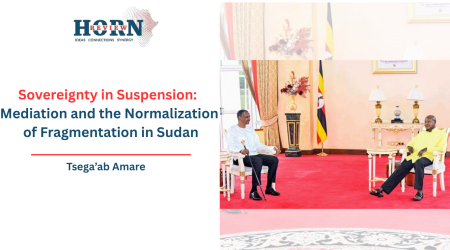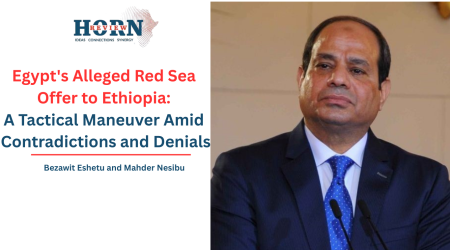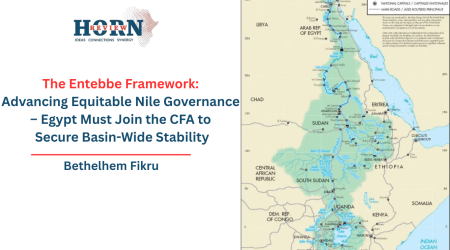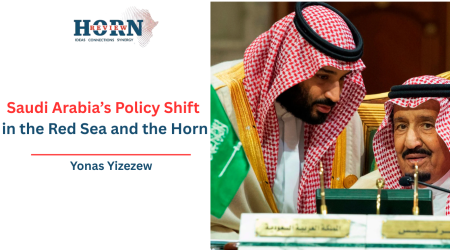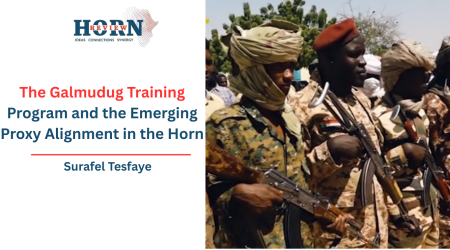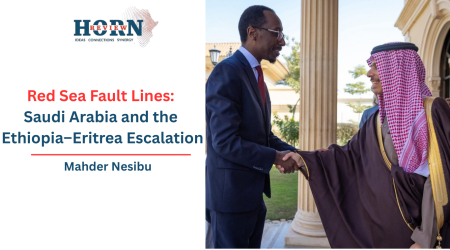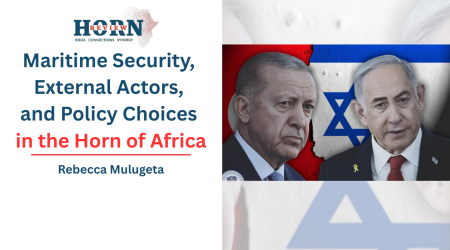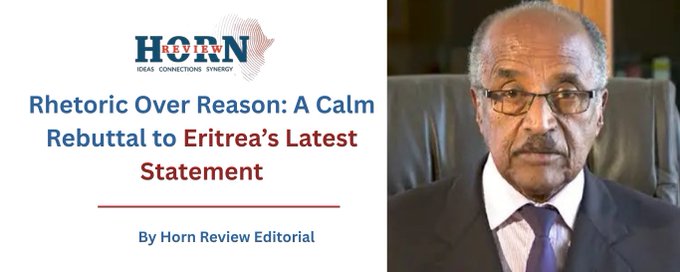
25
Nov
Rhetoric Over Reason: A Calm Rebuttal to Eritrea’s Latest Statement
The recent statement issued by Eritrea’s Ministry of Information is less a policy argument than a familiar performance of political theatre – a style marked not by substance but by insult, hyperbole, and ideological posturing. Rather than articulating a coherent diplomatic position, it relies on derision, psychological caricatures, and sweeping moral denunciations of Ethiopia and its leadership. Terms such as “abnormal psyche,” “old fantasies,” “theatrical stand-up performances,” and “laughable claims” reveal a communication culture that treats foreign policy as a battlefield of insults rather than a forum of ideas. This is not the language of a confident state defending its interests; it is the language of a system that mistakes verbal aggression for strategic clarity.
Behind the bombast lies a pattern: Eritrea’s regime, i.e. PFDJ’s, communication habitually reduces complex regional issues to moral binaries in which Eritrea stands eternally principled and besieged, while its neighbors are depicted as confused, deceitful, or psychologically flawed. This approach reflects a broader political habit of replacing transparent dialogue with narrative warfare. The result is a style designed to dominate the emotional landscape of the conversation while avoiding factual accountability.
This avoidance becomes clear in the substance of the accusations themselves. The claim that Ethiopia has no legal basis even to discuss sea access misrepresents both law and diplomacy. Raising the topic does not violate sovereignty; negotiation is the norm in international relations, not an intrusion. Ethiopia has never asserted a right to Eritrean territory nor officially demanded sovereign control of a port. It has of course spoken of historical wrongs, future partnerships, and shared development – arrangements that fit squarely within the very international legal principles PFDJ claims to defend.
Yet it insists that dialogue alone constitutes a threat. This stance is not a legal argument but a reflection of its political isolation: a state that interprets conversation as aggression inevitably fears diplomacy itself. That same pattern appears in its portrayal of Ethiopia’s motives. Accusations of “imperial nostalgia” and “historical revisionism” serve as rhetorical devices rather than evidence-based claims. Ethiopia’s recent discussions are forward-looking, focused on economic integration and regional interdependence. Ironically, it is Eritrea’s regime that repeatedly returns to century-old narratives as a political shield.
The attempt to frame cross-border Afar identity as a territorial plot further illustrates the distortion. Shared ethnic and cultural ties are common across the Horn of Africa and central to regional frameworks like the IGAD. They do not imply territorial claim, nor has Ethiopia suggested otherwise. Only PFDJ interprets this as a threat, because it reinforces the internal narrative of perpetual siege.
Similarly, the assertion that Ethiopia threatens force relies on selective quoting and maximalist interpretation, attributing unofficial comments to the state as formal policy. Ethiopia’s official position emphasizes peaceful negotiation and lawful arrangements. If Eritrea’s regime possesses evidence of a declared policy to use force, it has not presented it. Invoking the Ethiopia-Eritrea Boarder Commission’s ruling adds another layer of misdirection: border demarcation has nothing to do with port access or economic corridors. The ruling resolved one issue; PFDJ now wields it as a universal answer to unrelated questions.
The statement concludes with ideological branding – praising Nakfa principles while dismissing Medemer – as though political slogans resolve regional economic challenges. This rhetorical framework mirrors the entire document: moral superiority asserted in place of policy, accusation substituted for analysis, and ideology used to evade meaningful engagement.
Throughout the text, Eritrea’s regime communication style serves a single purpose: to shut down conversation by overwhelming it with hostility. But by drowning issues in theatrical language, the statement avoids the central questions. What practical arrangements does Eritrea support? What long-term vision does it propose for regional stability and economic cooperation? What mechanisms is it willing to engage in besides rejection? These questions remain unaddressed because the objective is not diplomacy – it is deflection.
In the end, PFDJ’s familiar arsenal of insults and narrative distortion does little to advance regional understanding. Communication designed to intimidate rather than inform cannot serve as a basis for constructive engagement. Recognizing this pattern is essential to understanding why dialogue in the Horn of Africa so often stalls: when every disagreement is treated as an existential threat and every neighbor as an antagonist, rhetoric inevitably replaces resolution.
By Horn Review Editorial

